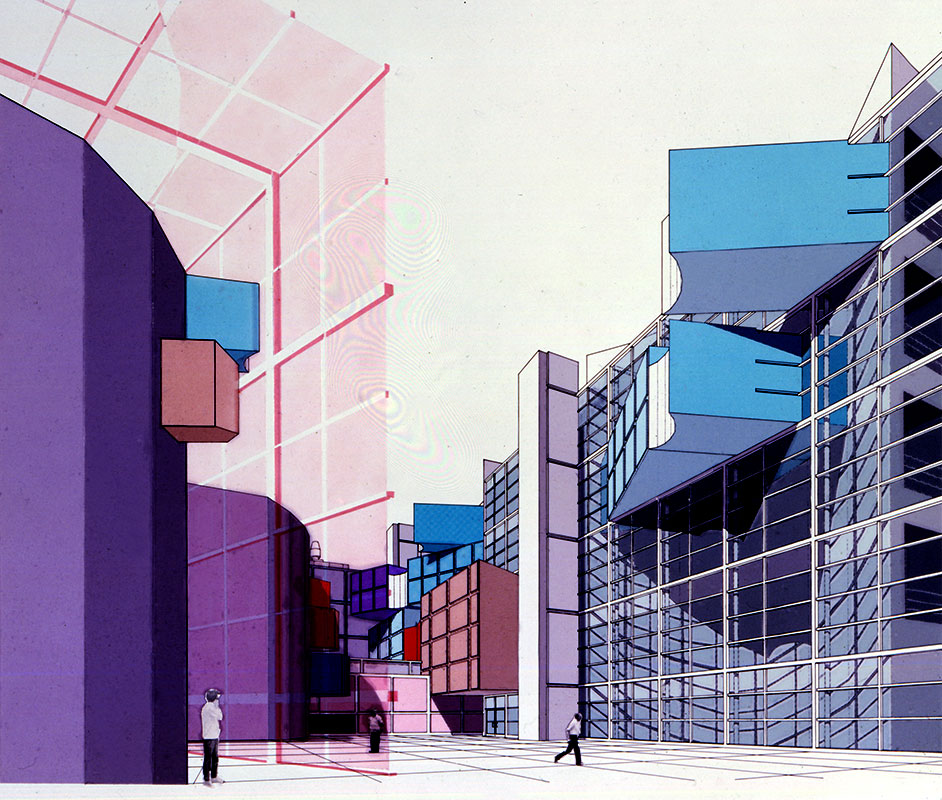
BIOCENTER
Location: Frankfurt am Main, Germany
Year: 1987
An
ambiguity between structure and ornament is produced in the design of the
Biocenter for J.W. Goethe University by creating an analogy between
architectural and biological processes. Biologists explain the construction of
proteins by using four geometric figures, each with a specific color that
symbolizes the DNA code. The shapes of the inner faces of these figures are
capable of locking together in pairs. The blueprint for every protein is
encoded in long sequences of these paired figures to form a double-strand
chain. Using an analogy between biological construction and architectural
construction, this chain can be transposed into architectural form in such a
way that it produces an architecture symbolic of the discipline it houses.
In the Biocenter, the biologists’ figures are overlaid on the site in a row along the base of a zigzagging band, following the precise sequence of the DNA chain for the protein collagen, which produces the necessary tensile strength of structure (as in bone). Rather than simply representing the physical configuration of the DNA, however, the project articulates the three most basic processes by which it produces proteins: replication, transcription, and translation. Each of these processes was used to transform the base figure progressively. By architecturally subjecting the biologists’ figures to the very processes they describe, the interdisciplinary boundaries between architecture and biology are burred. The final project is therefore neither simply architectural nor simply biological. Rather, it is an addition to a science complex that in itself can be naturally expanded, like the DNA double-helix model, as future use demands.
In the Biocenter, the biologists’ figures are overlaid on the site in a row along the base of a zigzagging band, following the precise sequence of the DNA chain for the protein collagen, which produces the necessary tensile strength of structure (as in bone). Rather than simply representing the physical configuration of the DNA, however, the project articulates the three most basic processes by which it produces proteins: replication, transcription, and translation. Each of these processes was used to transform the base figure progressively. By architecturally subjecting the biologists’ figures to the very processes they describe, the interdisciplinary boundaries between architecture and biology are burred. The final project is therefore neither simply architectural nor simply biological. Rather, it is an addition to a science complex that in itself can be naturally expanded, like the DNA double-helix model, as future use demands.
Concept
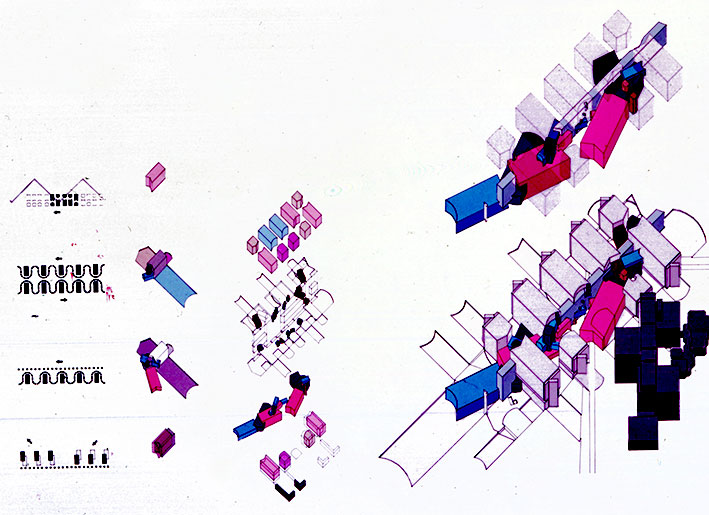
Drawings
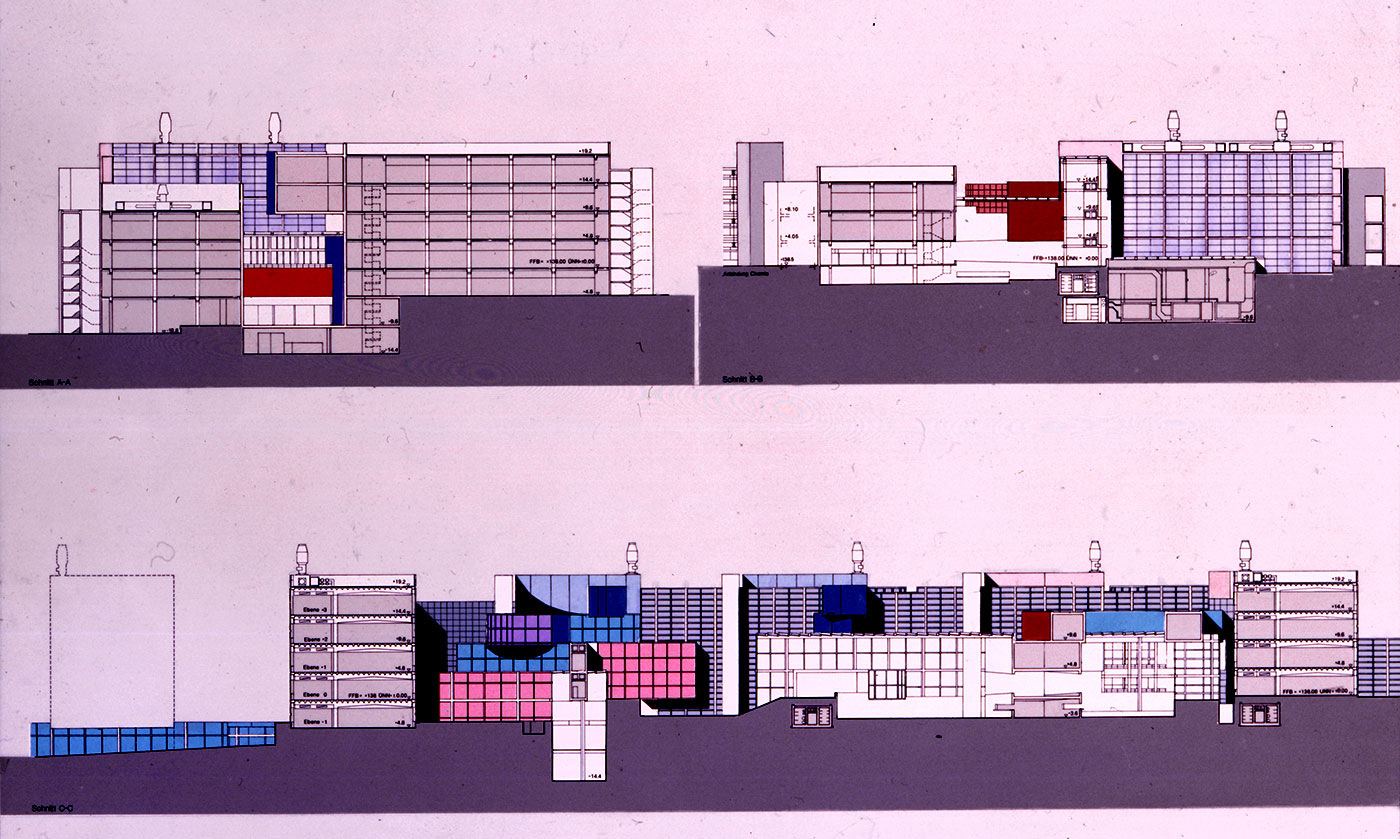
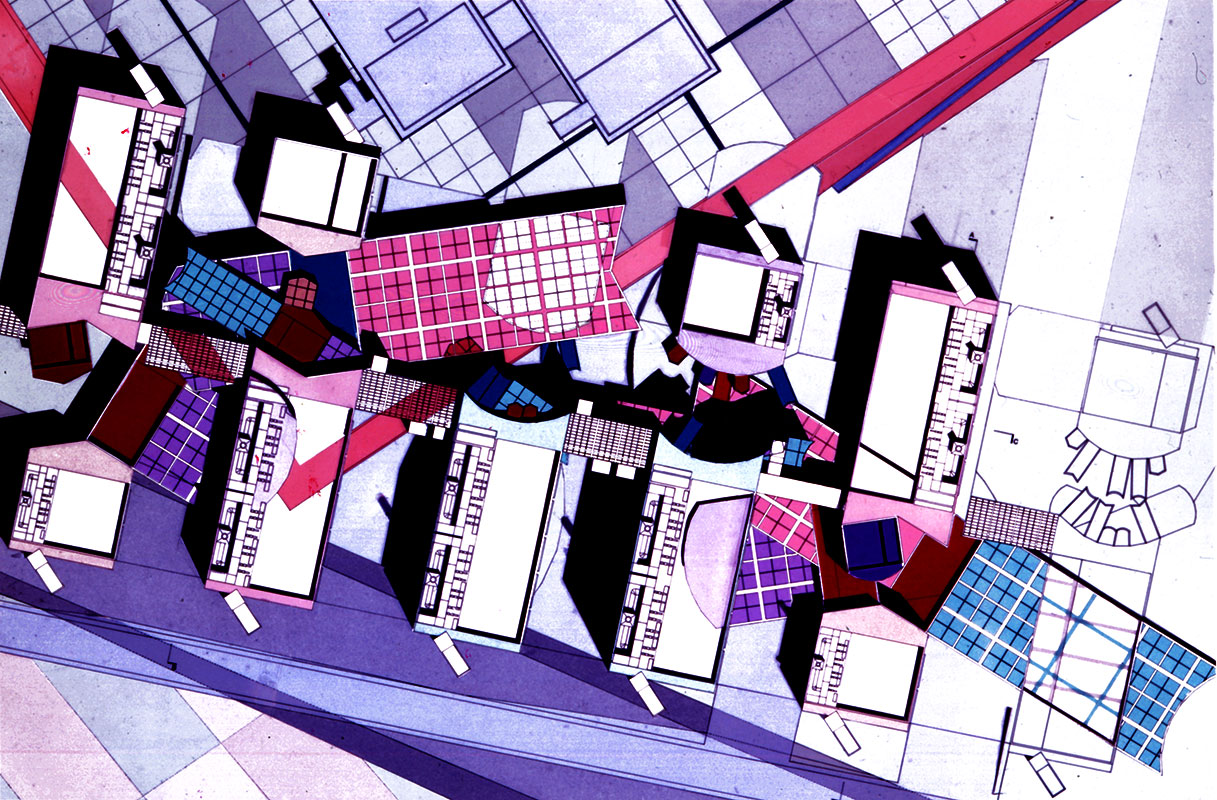
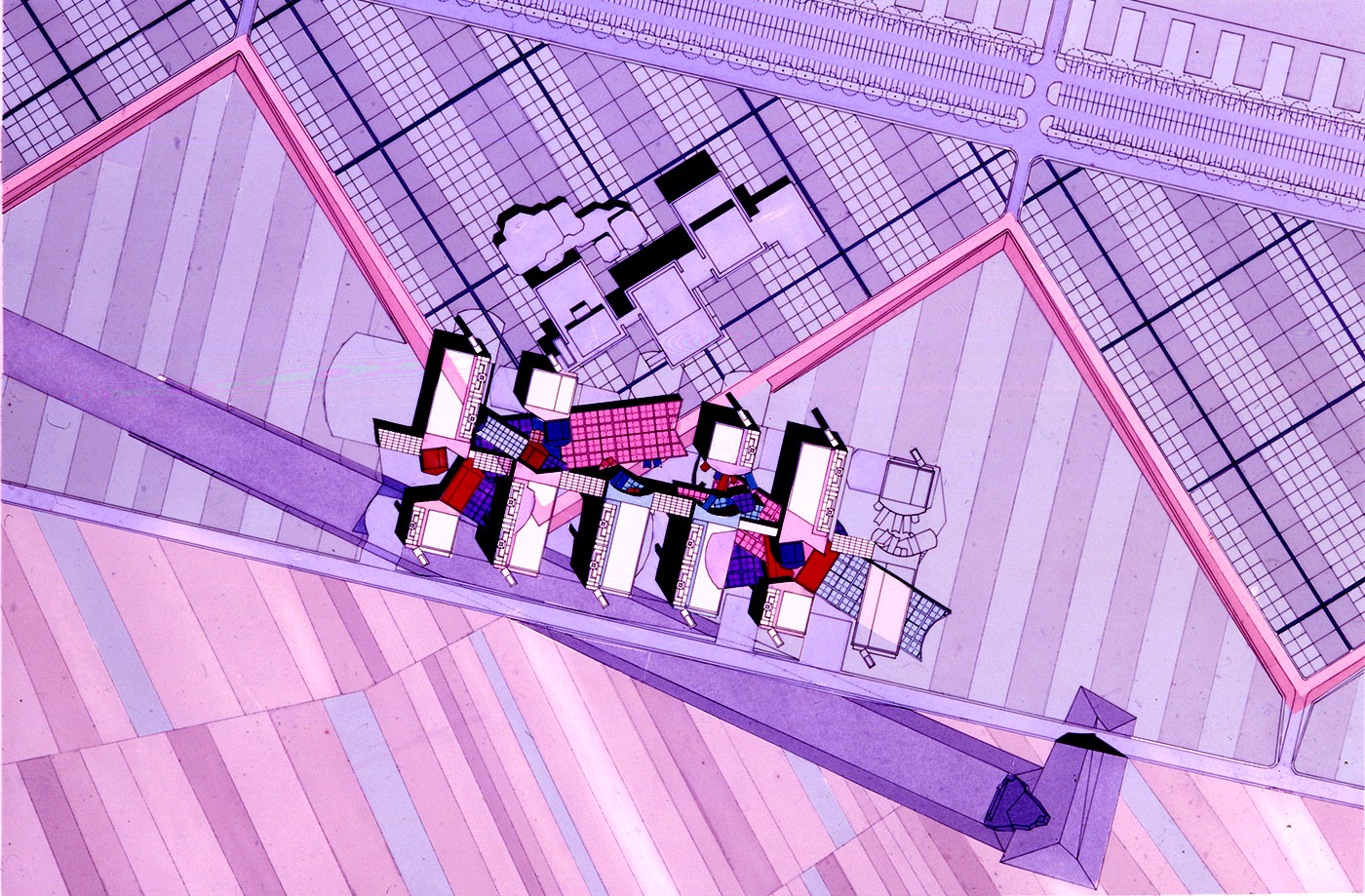
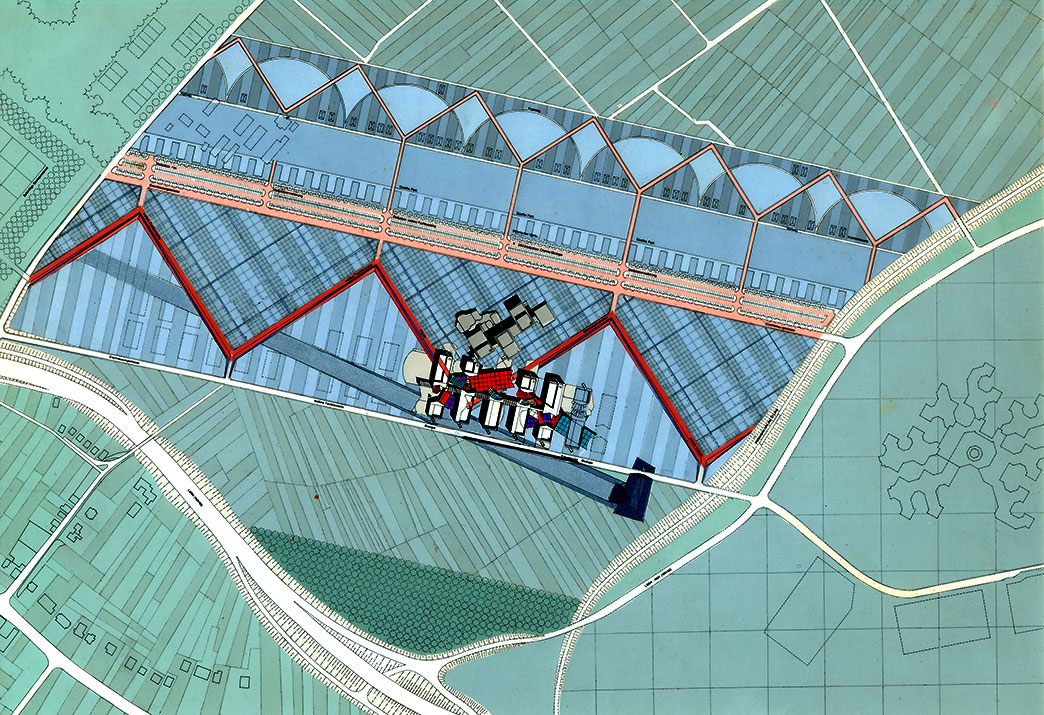
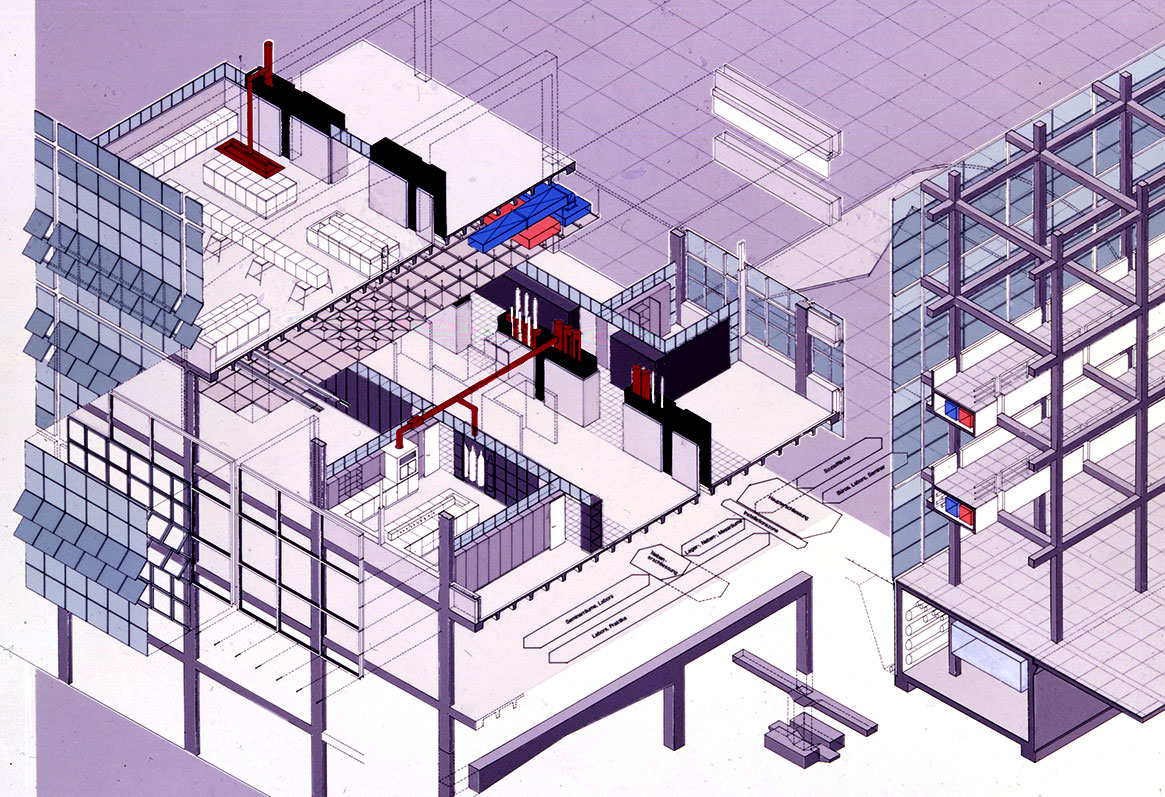
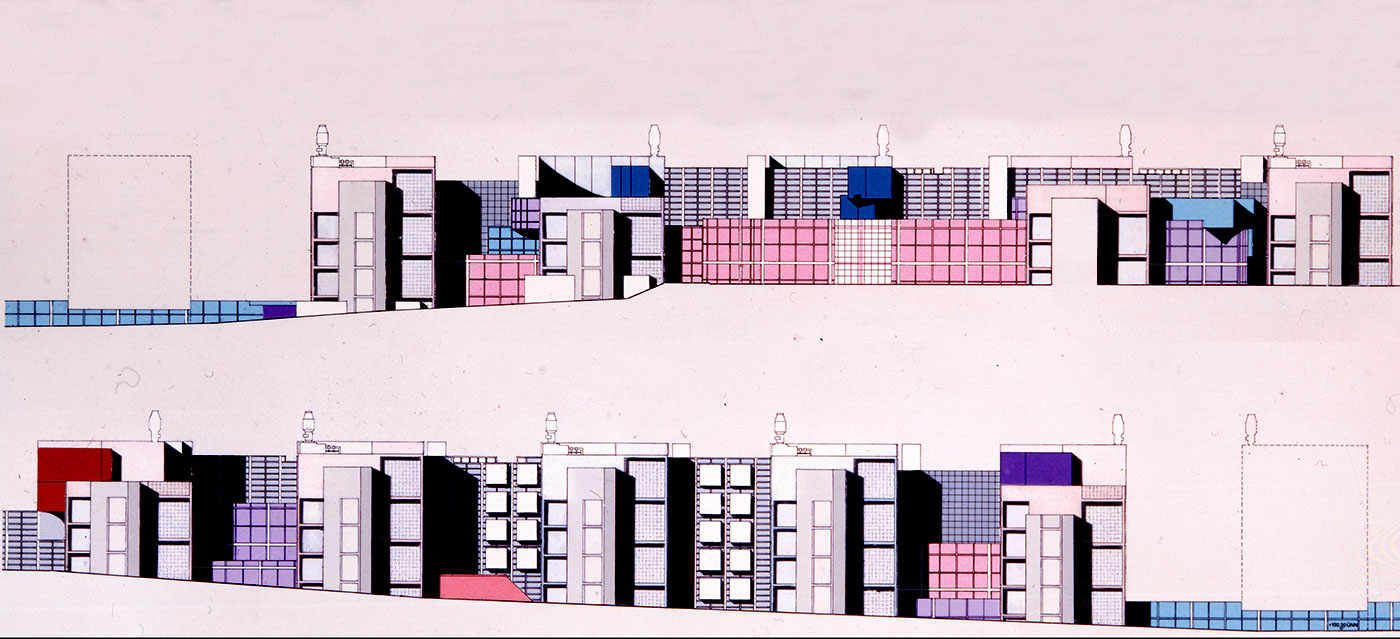
Model photos
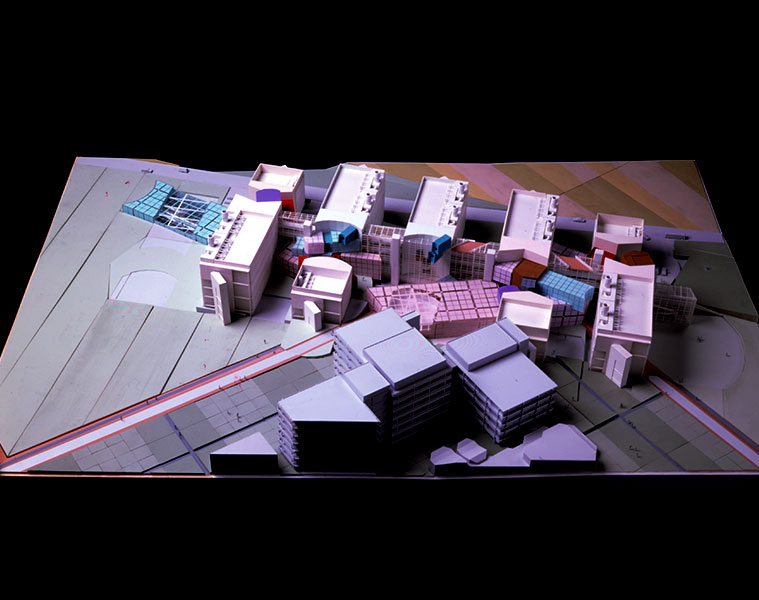
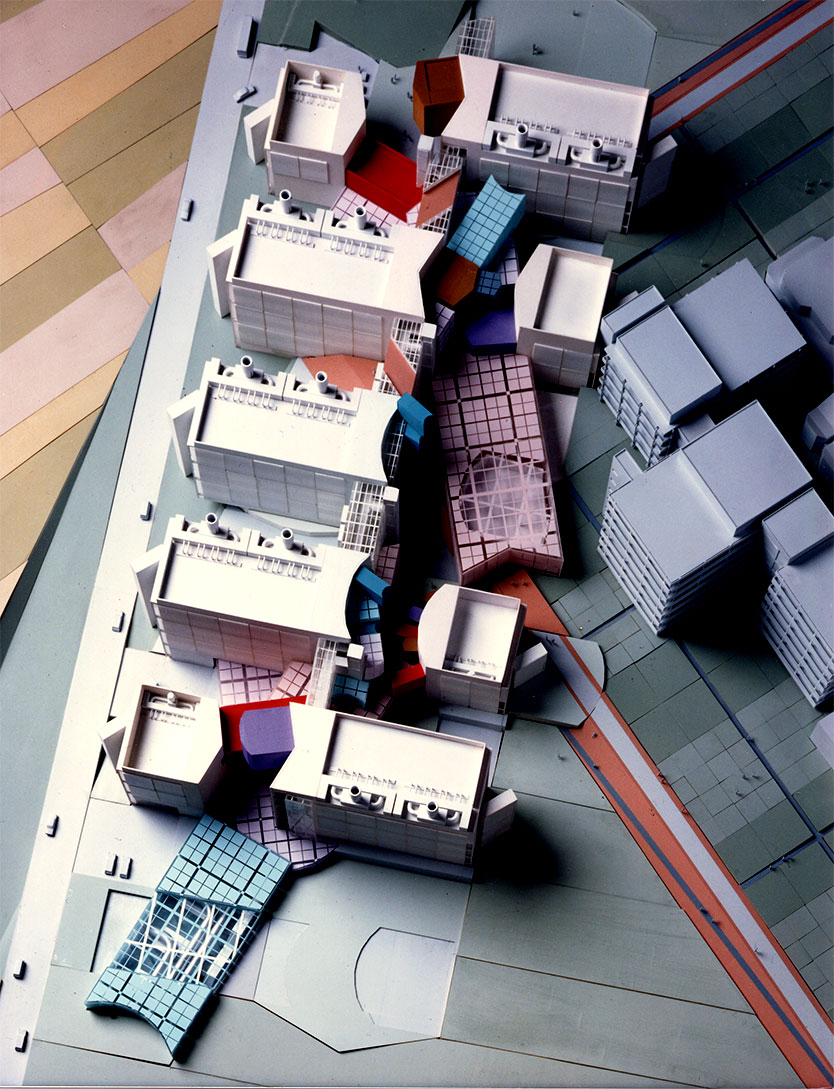
Images
